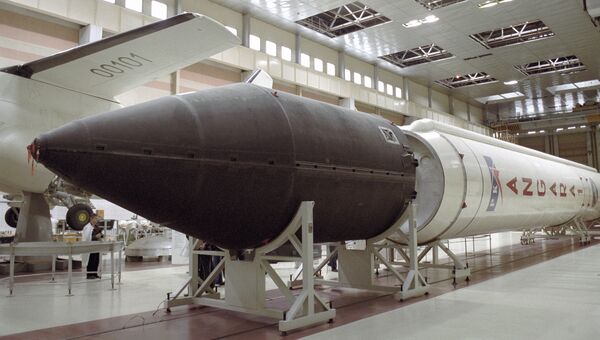Russia will use extensively the new Angara class carrier rockets to deliver military satellites into orbit, the commander of Russia's Space Forces has said.
The family of Angara rockets will complement, and eventually replace, the existing line of Rockot and Proton launch vehicles. It will be available in a range of configurations capable of lifting between from 2 to 24.5 metric tons into low-earth orbit, and its developers say it will have a low environment impact.
"In the future, light and heavy class Angara carrier rockets will form the core of the Russian fleet of delivery vehicles together with the medium class Soyuz-2 rockets. They will be used extensively to launch military satellites into orbit," Maj. Gen. Oleg Ostapenko said.
The Angara is intended mainly for launch from the Plesetsk space center to reduce Moscow's dependence on Kazakhstan's Baikonur, the main launch facility for the current generation of Russian rockets.
Meanwhile, Anatoly Perminov, the head of the Federal Space Agency Roscosmos, said last November that the maiden launch of the Angara carrier rocket could be postponed for at least one year due to shortage of funds allocated by the Defense Ministry on the construction of launch facilities.
The facilities were expected to be finished by 2010, and the first launch had been originally scheduled for 2011.
Russia's Khrunichev State Research and Production Space Center has recently asked the government to allocate an additional 10 billion rubles (about $290 million) over the next three years to finish the development of the rocket.
MOSCOW, January 15 (RIA Novosti)




